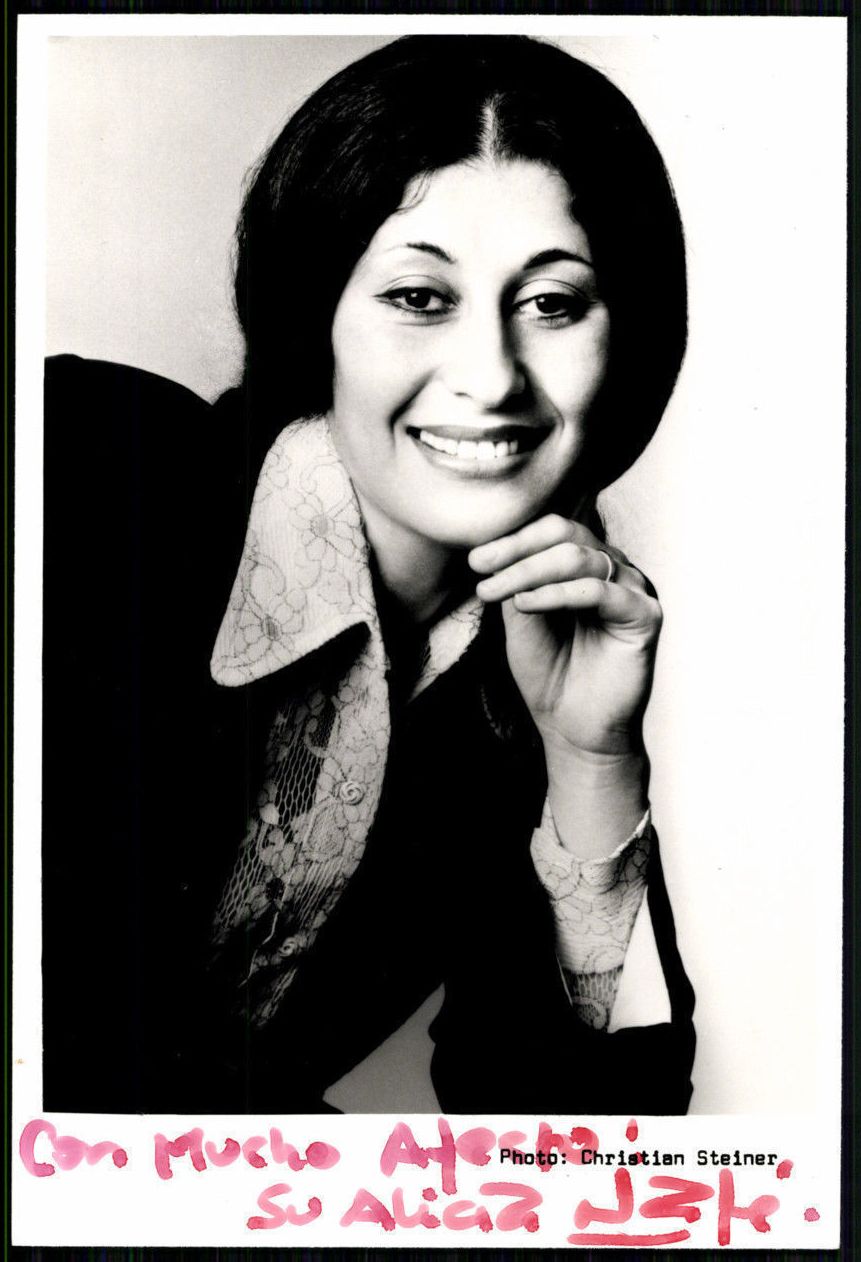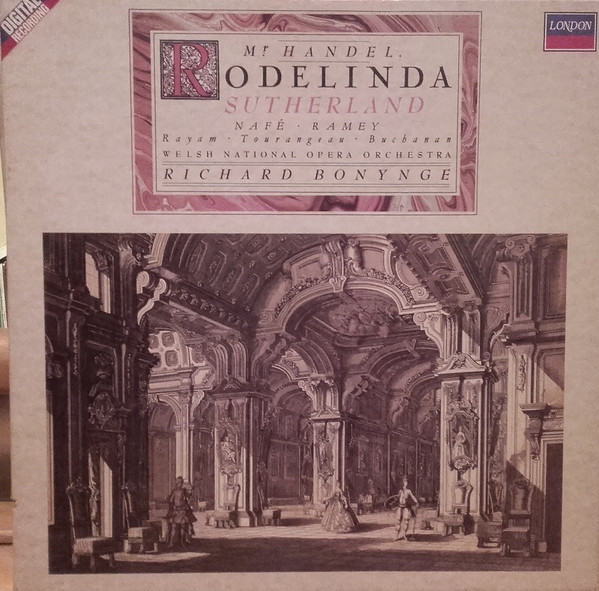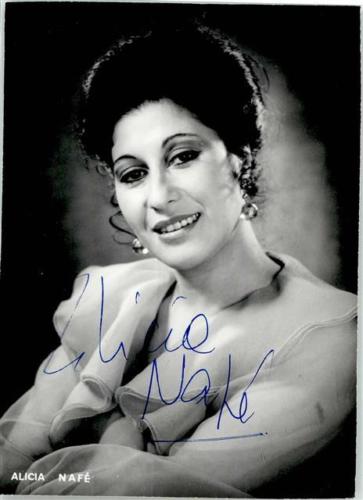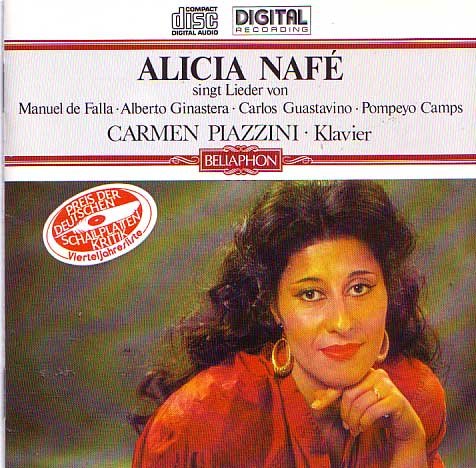

| The Spanish mezzo-soprano Alicia Nafé
of Argentinian origin, began her musical studies in Buenos Aires, where
she won the first prize in national competitions, including Promociones
Musicales, Harmonicus and the Sociedad Hebraica. A scholarship took her
to Madrid to continue her studies at the Escuela Superior de Canto. Here
she won the first prize in the Madrid María Ros de Lauri Volpi competition
and the Francisco Viñas prize in Barcelona. She made her debut
in Toledo Cathedral in Verdi’s Requiem, under the direction of
Rafael Frühbeck de Burgos, appearing thereafter in the same work
in London, Philadelphia, the Verona Arena, Hong Kong, the Teatro Colón
in Buenos Aires and in Spanish music festivals in Granada, Seville and
Barcelona. She devoted her earlier career to concert and recital appearances,
causing a sensation with her first Carmen at Darmstadt, followed
by performances throughout Germany, and then in the United States, culminating
at the Metropolitan Opera in New York. She appeared for two seasons at
Bayreuth, and for five years was associated with the Hamburg Opera, singing
principal French and bel canto mezzo-soprano rôles. Her highly successful
international career has taken her to musical centres throughout the world.
She sang La vida breve at the inaugural gala of the
Teatro Real de Madrid, and the work is among her many recordings in a
repertoire ranging from Monteverdi to Debussy. -- Biography from the Naxos website
|
 AN: No, it’s not a musical problem. Many theaters
put the first two acts together, then the last two together, so there
is only one intermission during the evening. Here in Chicago it
is not that way. We have an intermission after each act, so it’s
much more difficult for both the Don José and myself. We
have so much tension built up in the third act that we need to go quickly
to that final scene. But it’s just a technical problem to get rid
of the scenery.
AN: No, it’s not a musical problem. Many theaters
put the first two acts together, then the last two together, so there
is only one intermission during the evening. Here in Chicago it
is not that way. We have an intermission after each act, so it’s
much more difficult for both the Don José and myself. We
have so much tension built up in the third act that we need to go quickly
to that final scene. But it’s just a technical problem to get rid
of the scenery. BD: For any new role, how much digging do you have to do
into the character in order to come up with the right style?
BD: For any new role, how much digging do you have to do
into the character in order to come up with the right style? AN: Yes.
AN: Yes.
© 1985 Bruce Duffie
This conversation was recorded in Chicago on November 14, 1984. It was transcribed and published in the Massenet Newsletter in July, 1985. The transcription was slightly re-edited in 2018, and posted on this website at that time. My thanks to British soprano Una Barry for her help in preparing this website presentation.
To see a full list (with links) of interviews which have been transcribed and posted on this website, click here.
Award - winning broadcaster Bruce Duffie was with WNIB, Classical 97 in Chicago from 1975 until its final moment as a classical station in February of 2001. His interviews have also appeared in various magazines and journals since 1980, and he now continues his broadcast series on WNUR-FM.
You are invited to visit his website for more information about his work, including selected transcripts of other interviews, plus a full list of his guests. He would also like to call your attention to the photos and information about his grandfather, who was a pioneer in the automotive field more than a century ago. You may also send him E-Mail with comments, questions and suggestions.